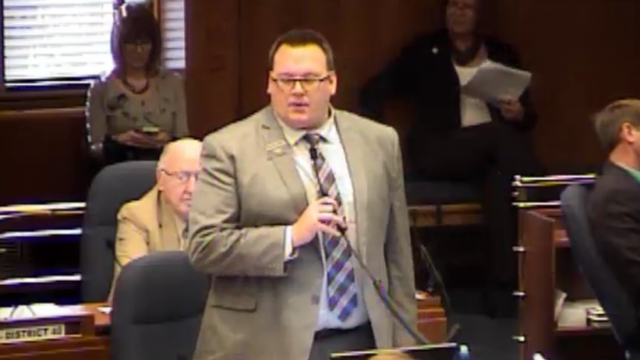Video: ND House Defeats Minimum Wage Increase For Tipped Workers

It didn’t do much better on the House floor, failing on a largely party-line 27-63 vote.
[mks_pullquote align=”right” width=”300″ size=”24″ bg_color=”#000000″ txt_color=”#ffffff”]”On a good night they certainly earn more than we do here per day,” Rep. Dan Ruby (R-Minot) quipped, referring to legislative pay.[/mks_pullquote]
Rep. Gary Sukut (R-Williston) carried the bill out of committee and explained the “do not pass” recommendation. “For many this is their first job,” he said. “Their wage plus tips makes for a great start.”
Rep. Boschee, clearly already resigned to the bill’s failure, said that it was “not a very popular bill” but noted that there shouldn’t be an exemption from the minimum wage for tipped workers. “In no other industry are we as consumers asked to subsidize the wages of workers,” he said.
Later in the debate Rep. Chris Olson (R-Fargo) pointed out that the legislation may have unintended consequences. “The consequence of this bill might be that patrons no longer feel they need to tip.”
That point rings true for me. Most people tip because they feel obligated to. Raising the minimum wage would no doubt remove that feeling of obligation and reduce the tip income for these workers which, without a doubt, is a lot more than their wage income.
“On a good night they certainly earn more than we do here per day,” Rep. Dan Ruby (R-Minot) quipped, referring to legislative pay.
I’ve gone back and forth on the issue of tipping, but generally I like the concept. It’s almost like a sort of commission system for good service. Workers who provide good service make the most, and those who don’t make far less. What’s so bad about that?
Besides, the government really has no business sticking its nose into the compensation negotiations of workers and employers.




